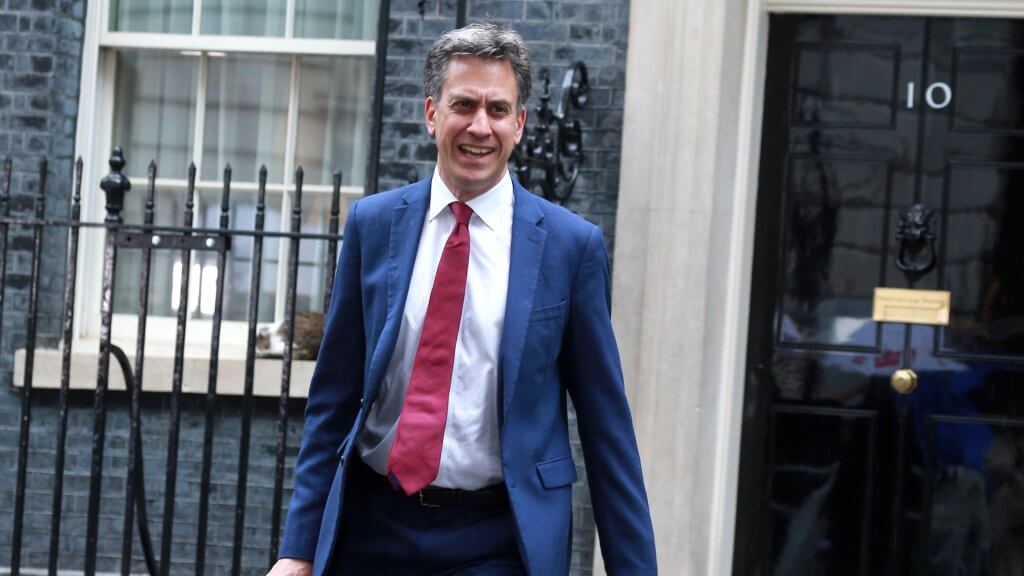Energy Secretary Ed Miliband is reportedly reviewing plans to develop a large-scale nuclear power plant at the Wylfa site in North Wales, raising doubts about the future of the project and the UK’s broader nuclear energy ambitions.
According to The Daily Telegraph, Miliband has instructed government officials to reassess the country’s nuclear strategy, including the proposed 24GW nuclear capacity target by 2050.
Wylfa Nuclear Plant Plans in Doubt
The Wylfa site on the Isle of Anglesey had been identified as a key location for a new nuclear power station, following its acquisition from Japanese firm Hitachi in a £160 million deal announced during Chancellor Jeremy Hunt’s Spring Budget.
The government’s purchase of the Wylfa site and the Oldbury site in Gloucestershire marked the first time since the 1960s that land was acquired for new nuclear development. However, the future of the Wylfa project, once seen as pivotal for the UK’s energy security, is now uncertain.
Hitachi had initially planned a £20 billion gigawatt-scale nuclear project at Wylfa, but the development was suspended in January 2019 due to rising costs and a failure to reach a financial agreement with the UK government.
Although Labour’s Wales manifesto mentioned exploring opportunities for nuclear at Wylfa, it stopped short of committing to a large-scale project, instead hinting that smaller modular reactors (SMRs) could be an alternative for the site.
UK’s 24GW Nuclear Target Under Review
In addition to reconsidering the Wylfa project, Miliband is also said to be evaluating the UK’s broader nuclear capacity target. The former Conservative government’s Civil Nuclear Roadmap, released earlier this year, had set an ambitious goal of reaching 24GW of nuclear capacity by 2050 to secure the UK’s energy future. The roadmap emphasised the importance of large-scale nuclear projects like Wylfa in achieving this target, but Miliband’s review may signal a shift away from that vision.
The plan to expand nuclear capacity was initially bolstered by the establishment of Great British Nuclear (GBN), a new body tasked with overseeing the growth of the nuclear sector. However, reports suggest that Miliband’s review could lead to a significant scaling back of nuclear ambitions, potentially scrapping the 24GW target altogether.
Political Backlash
Miliband’s potential pivot away from nuclear has sparked criticism from political opponents. Claire Coutinho, former energy secretary and now shadow energy secretary, expressed concern over the Labour government’s energy strategy, accusing Miliband of undermining the UK’s energy security.
“Ed Miliband is shutting down the North Sea and now it seems he’s turning his back on nuclear,” Coutinho told The Daily Telegraph. “You cannot have an energy system based on wind and sun alone. This is total economic insanity. All it will mean is more imports from abroad and higher bills.”
Coutinho’s comments highlight fears that scaling back nuclear energy could leave the UK more reliant on imported energy, driving up costs for consumers and increasing vulnerability to global energy market fluctuations.
Government Response
The Department for Energy Security and Net Zero (DESNZ) has not confirmed any changes to the UK’s nuclear plans. A spokesperson stated that “no decisions have yet been taken on the projects and technologies to be deployed at sites, and any decision will be made in due course.”
While the Wylfa project remains in limbo, the potential for a reduced nuclear target raises questions about how the UK will meet its future energy needs, particularly as the country transitions towards renewable sources like wind and solar. Without significant nuclear investment, achieving the UK’s long-term energy goals could become increasingly challenging.
As Miliband’s review continues, the fate of the Wylfa site and the UK’s nuclear strategy will be closely watched, with the outcome likely to have a significant impact on the nation’s energy landscape for decades to come.
What alternatives?





